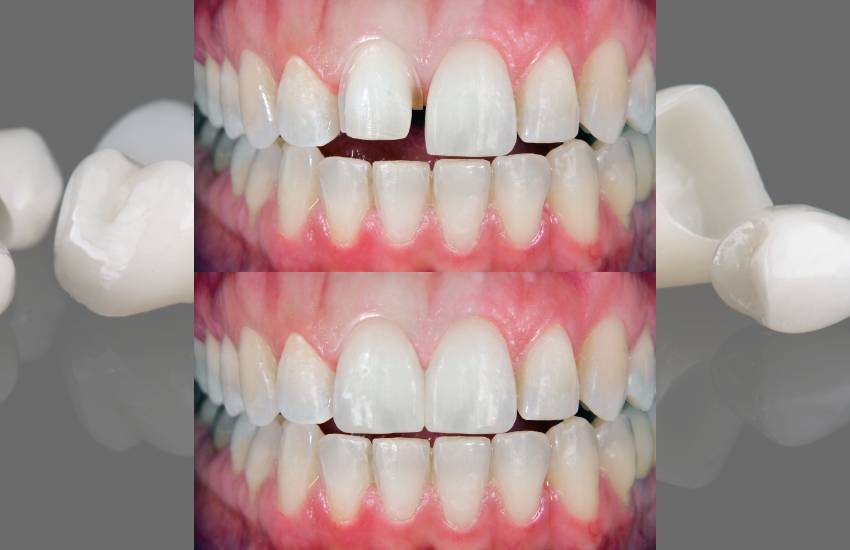Dental Veneers


Call Us Today
Dental Veneers
Dental veneers (sometimes called porcelain veneers or dental porcelain laminates) are wafer-thin, custom-made shells of tooth-colored materials designed to cover the front surface of teeth to change appearance. These shells are bonded to front of the teeth, changing their color, shape, size, or length.
What are benefits of Dental Veneers?
They look like a natural tooth.
Gums usually aren't sensitive to porcelain.
Porcelain veneers are not easily stained.
They generally don't require as much shaping as crowns do, and they are stronger and look better.
Types of Veneers:
Veneers can be made from porcelain or from resin composite materials. You can discuss the best choice of veneer material for you with your dentist.
1. Pop-on veneers
Pop-on veneers – also known as removable or snap-on veneers – cover your natural teeth to hide any issues. Pop-on veneers:
- Instantly change the look of your smile
- Are one of the least expensive veneer options
- Can be taken out at any time
2. Composite veneers
Composite veneers can help fix small issues, such as a cracked tooth or a small gap in your teeth. Your dentist applies a composite resin – made of plastic and ceramic – directly to your teeth. In many cases, the entire treatment can be finished in one visit. Composite veneers are one of the most common treatment options.
3. No-prep veneers
While no-prep veneers are much less involved than other types, they still require the removal of some enamel. This treatment is great for fixing small gaps in your teeth. Check with your dentist to see whether no-prep is right for you.
4. Porcelain veneers
Porcelain veneers resist stains better than resin veneers. They have more of the light-reflecting features of natural teeth. Your dentist will remove some enamel from your teeth and custom-fit the veneers to them.
FAQs
Ans: Dental veneers are thin, custom-made shells of tooth-colored material that cover the front surface of teeth. They are designed to improve the appearance of your teeth by correcting imperfections like discoloration, chips, or gaps.
Ans: The most common types of veneers are porcelain and composite resin. Porcelain veneers are more durable and resistant to stains, while composite veneers are less costly and can be applied in a single visit.
Ans: With proper care, porcelain veneers can last 10 to 15 years, while composite veneers typically last 5 to 7 years. Maintaining good oral hygiene and regular dental checkups can help extend their lifespan.
Ans: Veneers can improve the appearance of mildly crooked teeth by creating a straighter smile. However, for more severe cases of misalignment, orthodontic treatment may be a better solution.
Ans: Porcelain veneers are resistant to stains, while composite veneers can be more prone to discoloration over time. However, it’s best to avoid foods and habits that can stain your veneers, like coffee, tea, and smoking.
Ans: Getting veneers usually requires two visits. The first involves consultation, tooth preparation, and impressions, while the second visit is for fitting and bonding the veneers.
Ans: The cost of veneers varies depending on the type and number of veneers needed. Contact our clinic for a personalized consultation and an estimate based on your specific needs.

